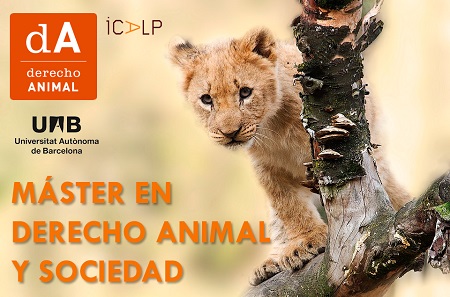Results
| Title | Citation | Alternate Citation | Summary | Type |
|---|---|---|---|---|
| VA - Dogs - Consolidated Dog Laws | Va. Code Ann. § 3.2-5900 - 6590; § 15.2-981; § 18.2-97, 97.1; § 18.2-313.1; § 18.2-403.3; § 29.1-422; § 29.1-516.1; § 32.1-48.1 - .4 | VA ST § 3.2-5900 - 6590; § 15.2-981; § 18.2-97, 97.1; § 18.2-313.1; § 18.2-403.3; § 29.1-422; § 29.1-516.1; § 32.1-48.1 - .4 | These Virginia statutes comprise the state's dog laws. Among the provisions include laws on the sale of dogs, rabies control laws, and sections concerning damage done by dogs. | Statute |
| MI - Waterford - Breed - ARTICLE III. PIT BULL TERRIERS AND EXOTIC ANIMALS | WATERFORD, MI., CODE OF ORDINANCES, Art. III, §§ 3-021 - 3-027 | It shall be unlawful for any person to own, possess or maintain, within the Township, any pit bull terrier, as defined herein. The city has comprehensive guidelines for identification as a "pit bull" including appendixes that provide guidance on breed characteristics. Violation of this Section is a civil infraction. | Local Ordinance | |
| Connor v. Bogrett | 596 P.2d 683 (Wyo., 1979) | 26 UCC Rep.Serv. 902 (Wyo., 1979). |
This Wyoming case concerns the application of the sales provisions of the Uniform Commercial Code as adopted in Wyoming (ss 34-21-201 through 34-21-299.5, W.S.1977) to a sale of a registered Black Labrador retriever which was intended for competition in field trials. More specifically the question is whether the continued physical ability of this retriever, as a matter of law, was precluded from becoming part of the basis for the bargain of the parties. The court agreed with the district court in this instance that, as a matter of law, the expressions of the seller relative to the potential of this retriever were only expressions of opinion or commendation and not an express warranty. |
Case |
| People v. Robards | 97 N.E.3d 600 (Ill. App. Ct. Mar. 12, 2018) | 2018 IL App (3d) 150832; 420 Ill.Dec. 718, 2018 WL 1276832 (Ill. App. Ct. Mar. 12, 2018) | This case is an appeal from an animal cruelty conviction against defendant Ms. Regina Robards. She seeks appeal on the grounds that the State failed to prove her guilty beyond a reasonable doubt. Robards was charged with aggravated animal cruelty when her two dogs, Walker and Sparky, were discovered in her previous home emaciated, dehydrated, and dead. She had moved out of the home and into Ms. Joachim’s home in July 2014, telling Joachim that she was arranging for the dogs to be taken care of. However, when Joachim went over to the prior home in November 2014, she discovered Walker’s emaciated body on the living room floor. She called the police, who discovered Sparky’s body in a garbage bag in the bedroom. Robards’ conviction required that it was proven beyond a reasonable doubt that she intentionally committed an act that caused serious injury or death to her two dogs, and failing to seek adequate medical care for them. On appeal, Robards concedes that the dogs both died from dehydration and starvation, and that she was the only person responsible for the dogs’ care. However, she argues that for her conviction to stand, the prosecutor must prove that she intended to cause serious injury or death to the dogs. The court disagrees, stating that for conviction only the act need be intentional, and that the act caused the death or serious injury of an animal. Notably, the court observed that "defendant is very fortunate to have only received a sentence of 12 months' probation for these heinous crimes," and criticized the circuit court for its "unjustly and inexplicably lenient" sentence simply because defendant only caused harm to an animal and not a human being. | Case |
| SD - Assistance Animal - Assistance Animal/Guide Dog Laws | S D C L § 20-13-23.1 - 4, 32-27-7 - 8; 40-1-38 - 40; 43-32-33 - 36 | SD ST § 20-13-23.1 - 4, 32-27-7 - 8; 40-1-38 - 40; 43-32-33 - 36 | The following statutes comprise the state's relevant assistance animal and guide dog laws. | Statute |
| Bormann v. Board of Supervisors In and For Kossuth County | 584 N.W.2d 309 (Iowa 1998) |
The court held that a statutory immunity provision designed to protect farming operations from nuisance litigation constituted a taking under the Fifth Amendment because the right to maintain an action for nuisance at common law was considered an easement. |
Case | |
| Batra v. Clark | 110 S.W.3d 126 (Tex.App.-Houston [1 Dist.],2003) |
In this Texas case, the appellant-landlord appealed a verdict that found him negligent for injuries suffered by a child visiting a tenant's residence. The lower court found the tenant and landlord each 50% liable for the girl's injuries. The Court of Appeals, in an issue of first impression, if a landlord has actual knowledge of an animal's dangerous propensities and presence on the leased property, and has the ability to control the premises, he or she owes a duty of ordinary care to third parties who are injured by this animal. In the present facts, the court found that Bantra had no duty of care because there was no evidence showing that Batra either saw the dog and knew that it was a potentially vicious animal or identified the dog's bark as the bark of a potentially vicious animal. The judgment was reversed. |
Case | |
| CT - Reindeer - 26-57a. Regulations for the establishment of in-state captive herds of cervids. | C.G.S.A. § 26-57a | This Connecticut law relates to the regulation of in-state captive herds of cervids, including reindeer. Under the law, not later than November 1, 2012, the Commissioner of Agriculture shall implement a pilot program for the issuance of two permits that allow not more than two Connecticut businesses to maintain not more than five reindeer each. | Statute | |
| Master's Degree in Animal Law and Society |

|
Basic page | ||
| OK - Domestic Violence - § 60.2. Protective order--Petition--Complaint requirement for certain stalking victims--Fees | 22 Okl. St. Ann. § 60.2 | OK ST T. 22 § 60.2 | This Oklahoma law reflects the state's provision for protective orders in cases of domestic abuse. The person seeking a protective order may further request the exclusive care, possession, or control of any animal owned, possessed, leased, kept, or held by either the petitioner, defendant or minor child residing in the residence of the petitioner or defendant. The court may order the defendant to make no contact with the animal and forbid the defendant from taking, transferring, encumbering, concealing, molesting, attacking, striking, threatening, harming, or otherwise disposing of the animal. | Statute |
